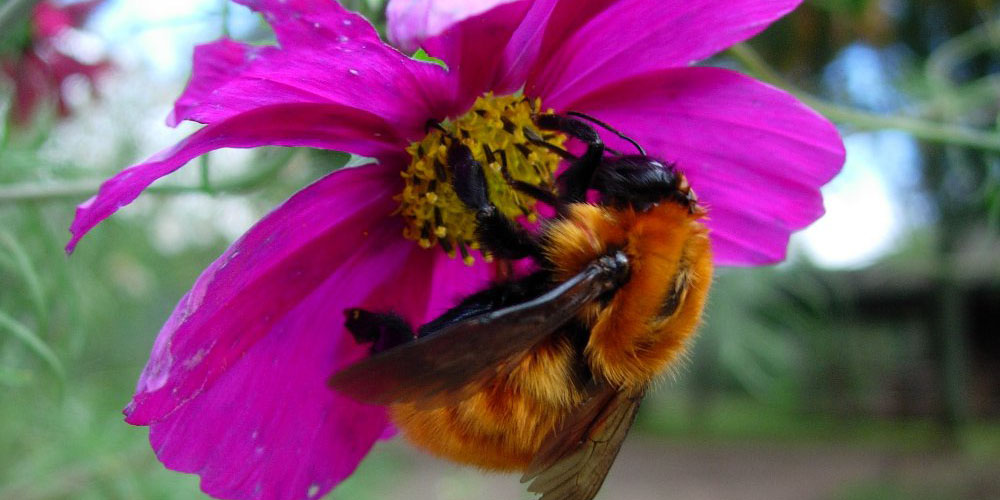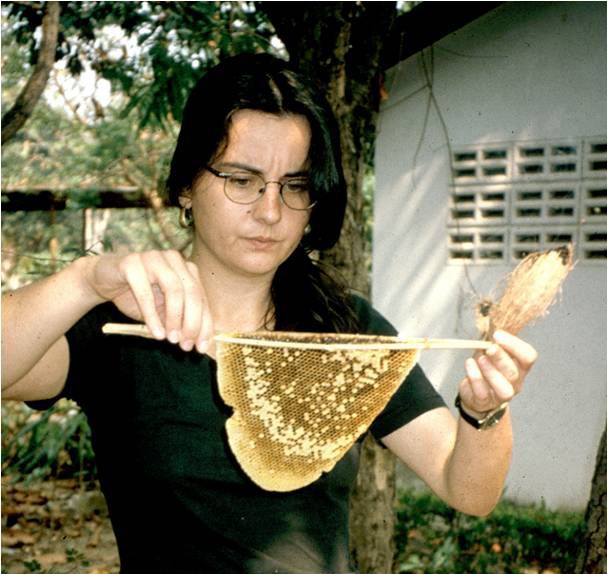Bee research means being outside – at least in my case. For me, it also means travelling a lot. I do most of my studies in Italy and Spain. Sometimes also in other European countries like Austria, France or the UK. BeeSafe – i.e. my whole business – is built on my capacity to travel: countries, languages and cultures. It’s living the European idea. Everything was going well for 2020, and then came SARS-CoV-2. This blocked me for while in different aspects – one of them being that I fell off the track with this blog. For a small business like BeeSafe, a pandemic is really scary also beyond the sanitary issue.
Beginning of March, I was meant to give a talk on a big beekeeping event in Piacenza. But this was the moment when the pandemic hit in Italy. The event was first postponed to mid-April and very soon to October. We will see if it takes place this year. My plan was to combine this with meetings and organizing a study that’s about to start these days. Another study in Spain is also starting now and I was looking forward to visiting Valencia again. So this virus definitely influenced my bee research. Fortunately, I work with amazing people and they’re all well. It was soon clear that the studies would take place. With the difference that I wouldn’t be able to take my role as usual.
Bee research is teamwork
My activities have three pillars: agriculture, veterinary medicine and science communication. Especially the agricultural studies need quite a lot of infrastructure: fields, sometimes tunnels, and a lot of technical equipment. My role in these studies is usually one of the “external bee expert”, the so-called monitor. I don’t do them myself, I take care that everything is scientifically sound from the bee perspective. For me, it was always part of this to be present during the crucial parts of the studies. Not this year, but here’s where the team comes in: everybody does his part and we’re always communicating. So I know if everything is going well or not so much and can do my work remotely. Of course, I would prefer to be there; it’s always different to see things with your own eyes. Yet, knowing that you can trust in a team is a huge blessing.
The clinical studies etc. in veterinary medicine are a bit less resource-intense. I still do these myself. However, teamwork is still important: I work together with a beekeeper in Reggio Emilia who not only rents me the colonies but also does most of the technical work. He’s amazing as well and has a lot of experience in this type of studies. My job is again the scientific background, though in these studies I’m definitely more “hands-on” than in the agricultural field. Bee health, in the end, is my core expertise. Wake me up at 3 am and I write you a protocol for a clinical study, one for dose-confirmation or whatever.
Shifting from travelling to staying at home
Finally, the third pillar is science communication: it’s what I do on this blog, in talks, courses, and articles. It’s what I wanted to do in Piacenza in March and hopefully will be able to do in October. Also what I call “metastudies” falls into this category: I summarize the “state of the art” in an area important for my customers. Usually, it’s bee health-related, like the different available varroa treatments and their characteristics. This helps in the development of new products or formulations. In agriculture, knowing what pollinators are present in a crop and region is important background information for developing risk mitigation measures – the right ones. In this case, my “travelling between languages” also helps – I always include so-called “grey literature” in the languages I know (Spanish, German, English, French and Italian).
This is the area that I’m working in most at the moment. Fortunately – again – I got some opportunities in this field soon after it was clear that 2020 wouldn’t be a good year for outdoor research for me. At least not professionally, in the private area it may be the best for a long time. Because though I have to stay home, I have more opportunities to look for bees outdoors now. I moved houses in April, which meant I lost my beautiful roof terrace. But I gained an even more beautiful garden. I leave you with some impressions of it and the promise that this blog will be back to normal again – with posts every two weeks.






